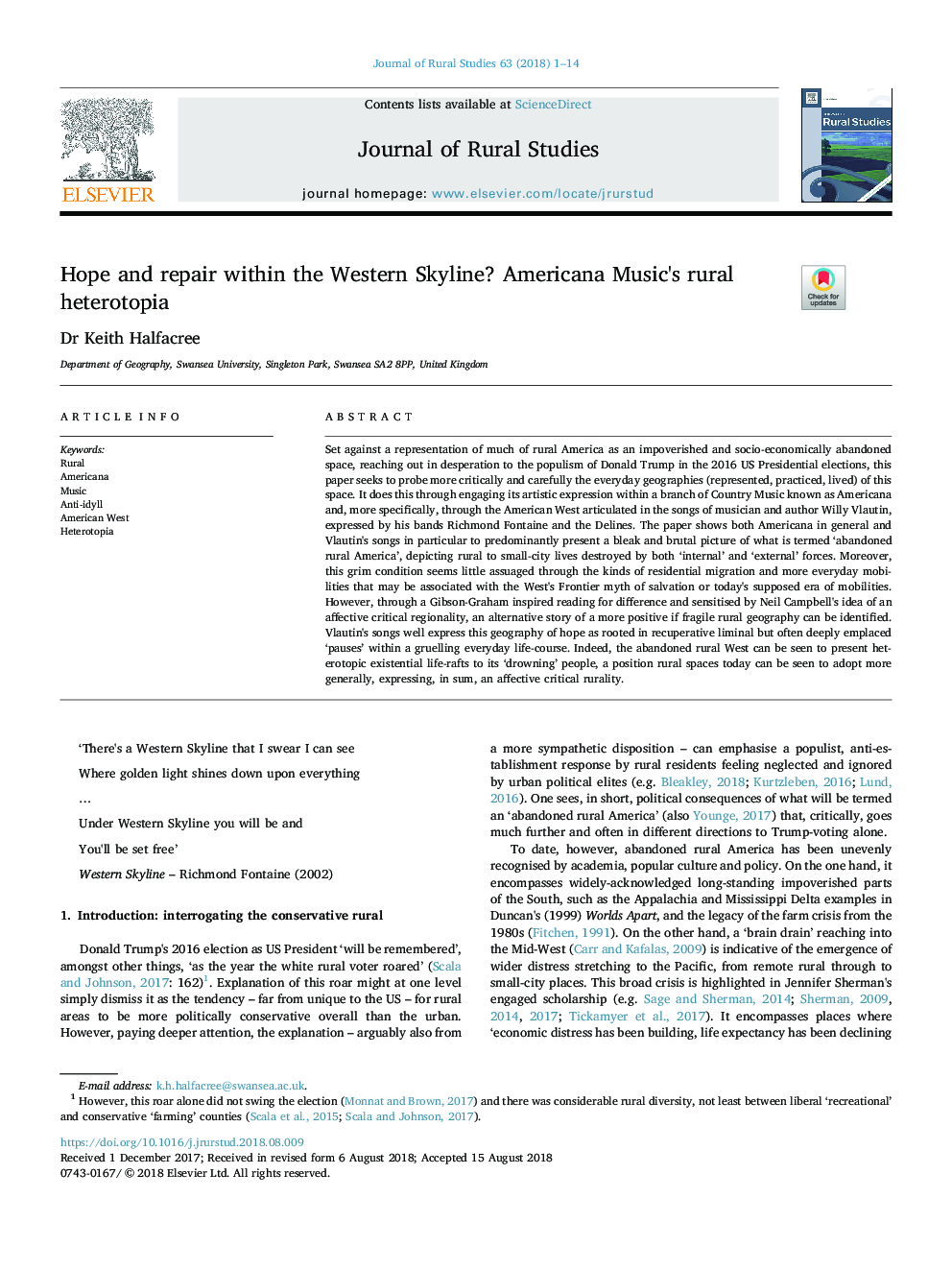| Article ID | Journal | Published Year | Pages | File Type |
|---|---|---|---|---|
| 10130774 | Journal of Rural Studies | 2018 | 14 Pages |
Abstract
Set against a representation of much of rural America as an impoverished and socio-economically abandoned space, reaching out in desperation to the populism of Donald Trump in the 2016 US Presidential elections, this paper seeks to probe more critically and carefully the everyday geographies (represented, practiced, lived) of this space. It does this through engaging its artistic expression within a branch of Country Music known as Americana and, more specifically, through the American West articulated in the songs of musician and author Willy Vlautin, expressed by his bands Richmond Fontaine and the Delines. The paper shows both Americana in general and Vlautin's songs in particular to predominantly present a bleak and brutal picture of what is termed 'abandoned rural America', depicting rural to small-city lives destroyed by both 'internal' and 'external' forces. Moreover, this grim condition seems little assuaged through the kinds of residential migration and more everyday mobilities that may be associated with the West's Frontier myth of salvation or today's supposed era of mobilities. However, through a Gibson-Graham inspired reading for difference and sensitised by Neil Campbell's idea of an affective critical regionality, an alternative story of a more positive if fragile rural geography can be identified. Vlautin's songs well express this geography of hope as rooted in recuperative liminal but often deeply emplaced 'pauses' within a gruelling everyday life-course. Indeed, the abandoned rural West can be seen to present heterotopic existential life-rafts to its 'drowning' people, a position rural spaces today can be seen to adopt more generally, expressing, in sum, an affective critical rurality.
Keywords
Related Topics
Life Sciences
Agricultural and Biological Sciences
Forestry
Authors
Dr Halfacree,
